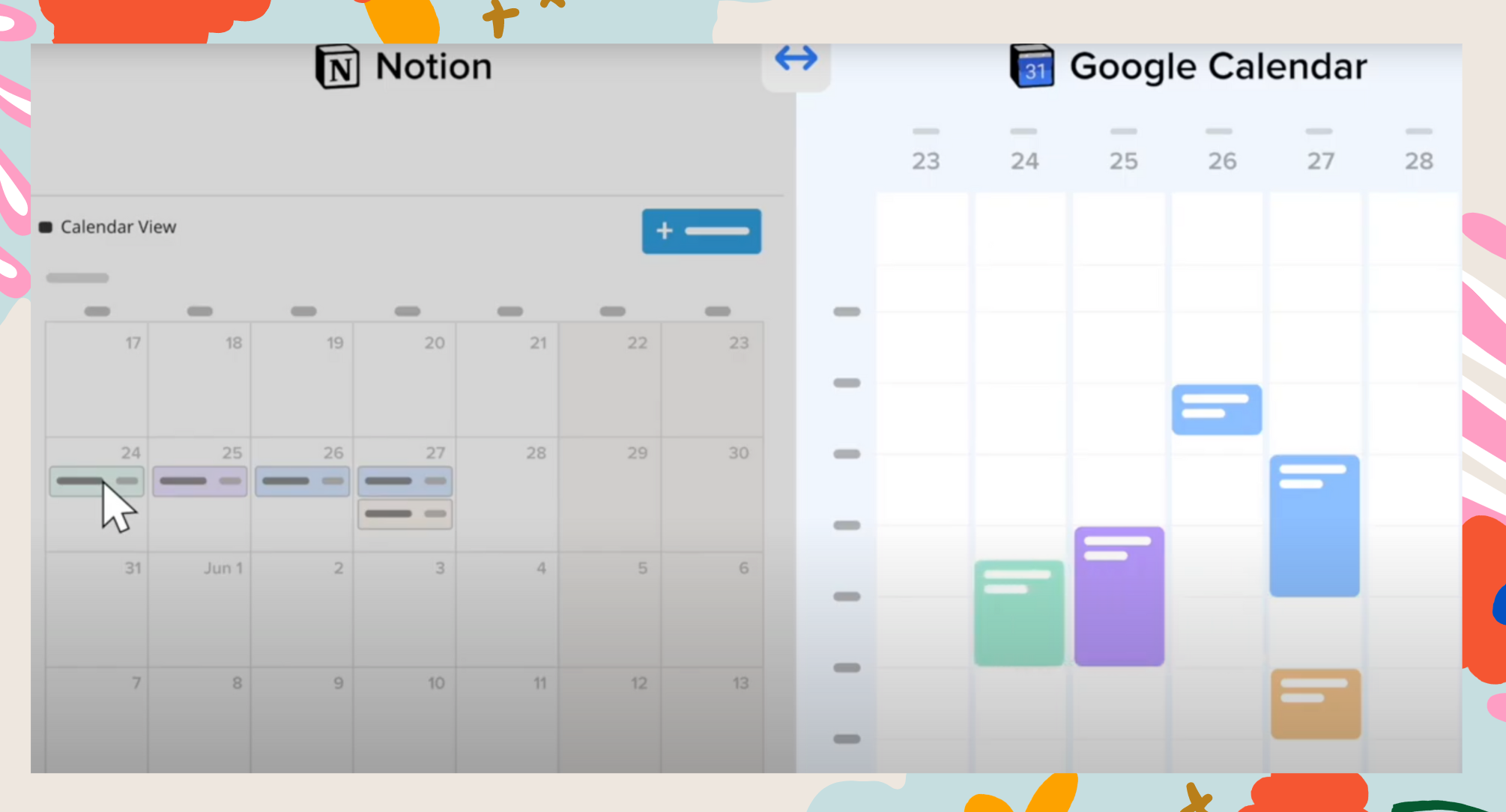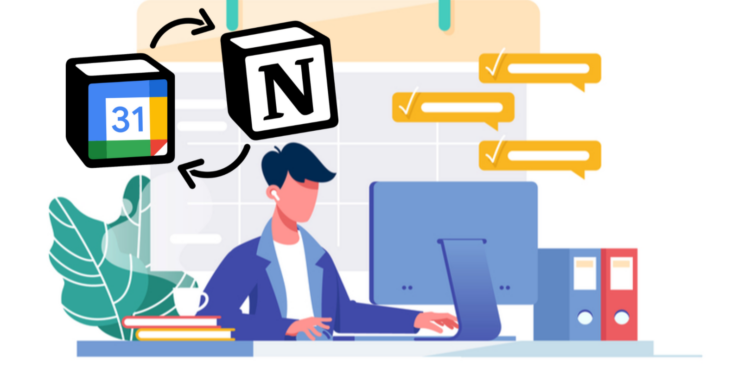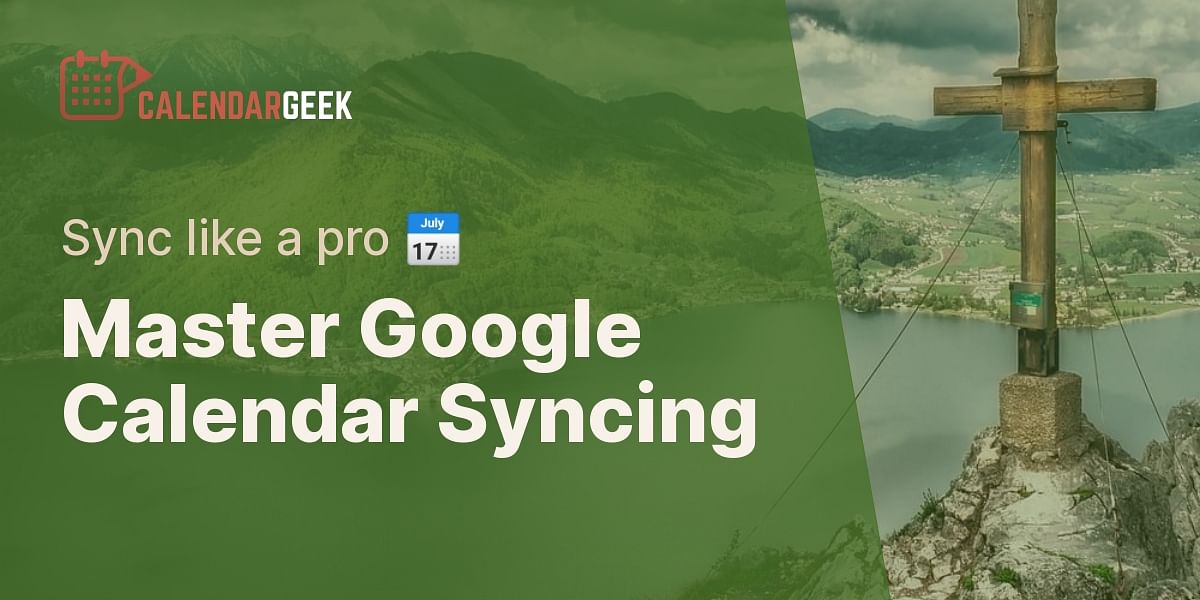Syncing Google Calendar with Notion: A Complete Information
Associated Articles: Syncing Google Calendar with Notion: A Complete Information
Introduction
With nice pleasure, we’ll discover the intriguing matter associated to Syncing Google Calendar with Notion: A Complete Information. Let’s weave attention-grabbing data and provide contemporary views to the readers.
Desk of Content material
Syncing Google Calendar with Notion: A Complete Information

Notion and Google Calendar are two powerhouse productiveness instruments, every excelling in numerous areas. Notion’s versatility permits for intensive customization and a centralized workspace, whereas Google Calendar reigns supreme in scheduling and occasion administration. The best workflow usually includes harnessing the strengths of each. Nevertheless, a direct, native integration between the 2 is absent. This text explores numerous strategies for syncing Google Calendar with Notion, starting from easy workarounds to extra refined options involving third-party apps and customized integrations. We’ll delve into the professionals and cons of every strategy, serving to you select the most effective technique to your particular wants and technical proficiency.
Understanding the Limitations of Direct Integration
Earlier than diving into the options, it is essential to acknowledge the shortage of a direct, built-in sync between Google Calendar and Notion. This absence stems from the elemental variations of their architectures and knowledge dealing with. Google Calendar is primarily targeted on occasion administration, with a sturdy API geared in the direction of scheduling and reminders. Notion, alternatively, is a extra general-purpose workspace, prioritizing flexibility and customization over specialised occasion administration options. A direct integration would require important improvement effort from both firm, and the advantages won’t outweigh the prices for both platform.
Strategies for Syncing Google Calendar with Notion
A number of strategies exist for reaching a level of synchronization between these two platforms. The effectiveness and complexity of every strategy fluctuate considerably.
1. Guide Entry: The Easiest (and Least Environment friendly) Technique
Essentially the most easy, albeit tedious, methodology is handbook entry. This includes creating occasions in Google Calendar after which manually transcribing the important particulars (date, time, title, description) right into a Notion database. This strategy is appropriate just for customers with only a few calendar entries or those that prioritize absolute management over knowledge illustration in Notion.
Professionals:
- Simplicity: Requires no technical abilities or third-party instruments.
- Full Management: You’ve got full management over how the knowledge is offered in Notion.
Cons:
- Time-Consuming: Extraordinarily inefficient for managing quite a few occasions.
- Liable to Errors: Guide knowledge entry will increase the danger of errors and inconsistencies.
- No Actual-Time Updates: Adjustments in Google Calendar will not mechanically mirror in Notion.
2. Using Notion’s Integrations with Different Calendar Apps:
Whereas Notion does not instantly combine with Google Calendar, it does provide integrations with different calendar purposes. Should you’re prepared to change your major calendar, this may very well be a viable answer. Some calendar apps provide higher Notion integration than others. Investigating these alternate options is a worthwhile endeavor if seamless synchronization is a excessive precedence.
Professionals:
- Probably Seamless Sync: Relying on the chosen calendar app, the combination could be easy and computerized.
- Centralized Calendar Administration: You would possibly discover a most popular calendar app that higher fits your workflow.
Cons:
- Requires Switching Calendar Apps: This necessitates migrating all of your present calendar knowledge, doubtlessly disrupting your established workflow.
- Dependency on Third-Celebration App: The reliability and options of the combination rely completely on the third-party app.
3. Using IFTTT or Zapier: Automation by means of Third-Celebration Companies
IFTTT (If This Then That) and Zapier are automation instruments that may join numerous purposes, together with Google Calendar and Notion. You’ll be able to create "applets" or "zaps" that set off an motion in Notion each time an occasion is added, up to date, or deleted in Google Calendar. This permits for close to real-time synchronization, though it is not good and sometimes requires cautious configuration.
Professionals:
- Automation: Reduces handbook effort considerably.
- Close to Actual-Time Updates: Adjustments in Google Calendar are mirrored in Notion with minimal delay.
Cons:
- Requires a Third-Celebration Subscription: Each IFTTT and Zapier provide free plans, however extra superior options usually require a paid subscription.
- Restricted Customization: The extent of customization could be restricted by the accessible applets or zaps.
- Potential for Delays: Whereas close to real-time, there can nonetheless be slight delays in synchronization.
- Fee Limits: Each providers have price limits, which could have an effect on efficiency with a really excessive quantity of calendar occasions.
4. Customized Integrations and Scripting: Superior Options for Builders
For customers with programming abilities, making a customized integration utilizing Google Calendar’s API and Notion’s API is feasible. This presents probably the most management and customization however requires important technical experience and ongoing upkeep. This strategy includes writing scripts (e.g., utilizing Python) to fetch knowledge from Google Calendar and push it to a Notion database.
Professionals:
- Most Customization: Permits for full management over the synchronization course of and knowledge illustration.
- Optimized Efficiency: Customized options could be fine-tuned for optimum effectivity.
Cons:
- Requires Superior Technical Abilities: This strategy is barely possible for customers with sturdy programming abilities.
- Upkeep Overhead: The mixing requires ongoing upkeep and updates to make sure compatibility with API modifications.
- Complexity: Growing and sustaining a customized integration is a posh and time-consuming enterprise.
Selecting the Proper Technique: A Sensible Information
The most effective methodology for syncing Google Calendar with Notion relies on your particular wants and technical capabilities:
- For customers with minimal calendar entries and no technical abilities: Guide entry is the best possibility, albeit inefficient.
- For customers in search of a steadiness between automation and ease: IFTTT or Zapier provide a great compromise, offering close to real-time updates with minimal technical experience required.
- For customers who prioritize seamless integration and are prepared to change calendar apps: Exploring Notion’s integrations with different calendar purposes is a worthwhile technique.
- For builders with sturdy programming abilities in search of most management and customization: Making a customized integration utilizing APIs is probably the most highly effective but additionally probably the most advanced answer.
Past Easy Synchronization: Leveraging Notion’s Energy
Even with a synchronized calendar, Notion’s true energy lies in its capacity to increase performance past easy occasion itemizing. As soon as your calendar occasions are in Notion, you possibly can:
- Create linked databases: Join calendar occasions to different databases, akin to process lists or undertaking administration boards, to create a complete workflow.
- Construct customized views: Manage and filter your calendar occasions primarily based on numerous standards, akin to precedence, undertaking, or workforce.
- Automate duties: Use Notion’s automation options (e.g., formulation, workflows) to set off actions primarily based on calendar occasions.
- Create dashboards: Visualize your calendar knowledge and different related data in a transparent and concise method.
Conclusion:
Whereas a local integration between Google Calendar and Notion stays absent, a number of efficient strategies exist for reaching a level of synchronization. Choosing the proper strategy relies on your technical abilities, the quantity of your calendar knowledge, and your required degree of automation and customization. By fastidiously contemplating these elements and leveraging Notion’s highly effective options, you possibly can create a extremely environment friendly and personalised workflow that seamlessly integrates your calendar along with your broader workspace. Keep in mind to all the time prioritize knowledge safety and thoroughly evaluation the permissions granted to any third-party apps or providers you make the most of.








Closure
Thus, we hope this text has supplied precious insights into Syncing Google Calendar with Notion: A Complete Information. We recognize your consideration to our article. See you in our subsequent article!